Bula and Peter: Heartwarming Progress and Messy Mud Baths
Dust rises from the bottom enclosure of HESC (Hoedspruit Endangered Species Centre) as baby Peter plays with Adine. His big ears point forward in excitement as he sprints from one end of the enclosure to another, his hooves thumping noisily across the dirt.
Peter is a four-month-old rhino calf who was adopted by HESC after his mother was killed by an elephant. It took Peter a few weeks to settle into his new home with his new carers, he was quite traumatised by the loss of his mother and the abrupt relocation that followed, and the stress impacted his ability to feed properly. However, over the last month he has grown more comfortable at HESC and is now drinking healthily and interacting playfully with Adine and carers.
Adine arrived today with a bucket full of mud (which she collected from multiple dams on her way from HERD to HESC). She explained that rhinos need mud to protect them from the sun, keep them cool and deter insects.
Peter was initially cautious of the ominous white bucket but as Adine begun rubbing the black
mud into his skin he relaxed with obvious enjoyment. When his entire body was covered, Peter decided to test out his new look with a few zoomies around his enclosure. He chased a soccer ball thrown by Adine and ran circles around the tree, dry dirt lifting from the ground and coating his muddy skin.
Peter is still a little too young to be introduced to any of the other rhinos at HESC, but as he grows stronger and healthier, the team will start considering the next step of his integration which will be meeting his fellow orphan rhinos such as Bula.
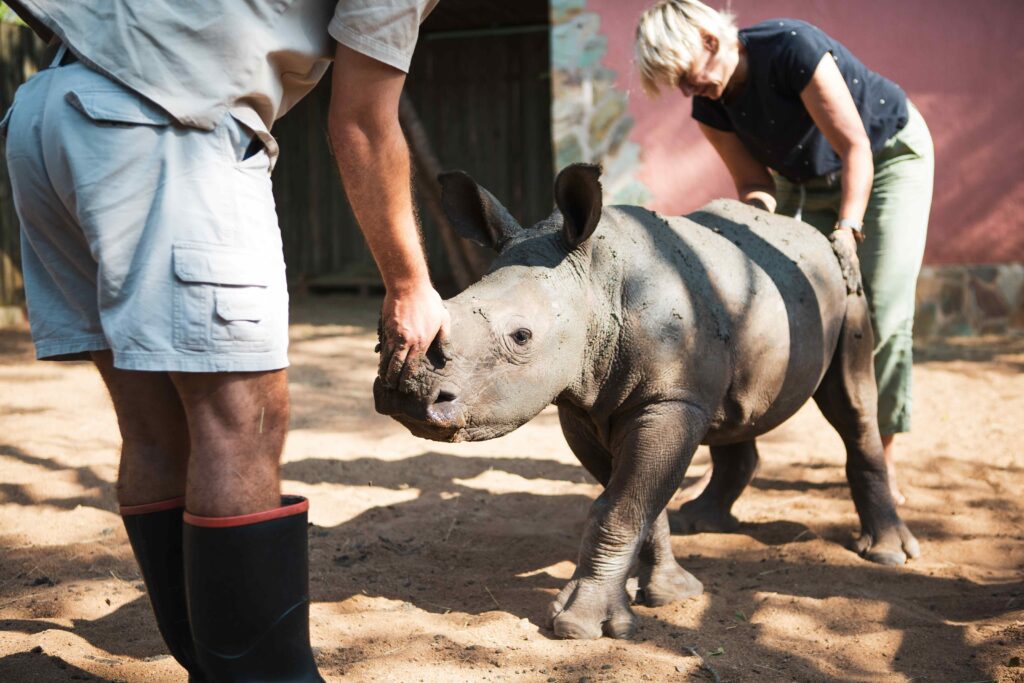
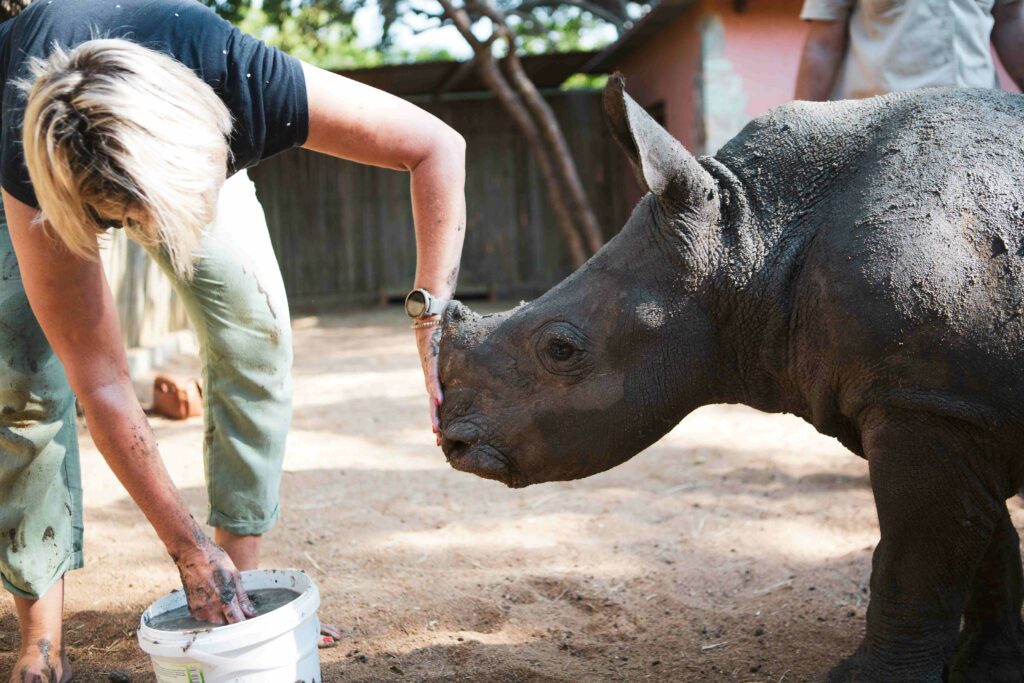
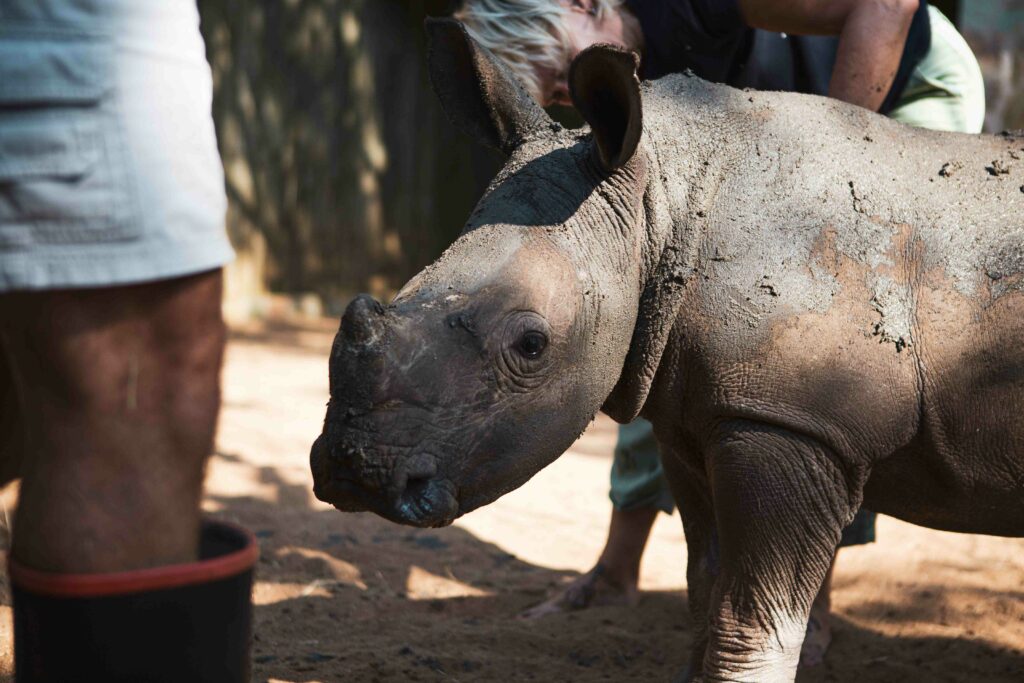
Bula, a seven-month-old orphaned male rhino, arrived around the same time as Peter. His mother was too old to produce enough milk for him and she eventually died. Bula was brought to HESC and introduced to Adine, who provided around the clock care for him as he slowly settled into his new home. HERD conservation student Nadine also spent lots of time with Bula in his first couple weeks at HESC. She explained that because he is an older calf and had never experienced human contact before, he was quite wild at first. It was difficult to get him to drink from a milk bottle without him ramming whoever was feeding him. However, he eventually grew comfortable with Adine and Nadine and began feeding regularly and healthily. Bula is in an enclosure that allows him to see other orphan rhinos in rehabilitation.

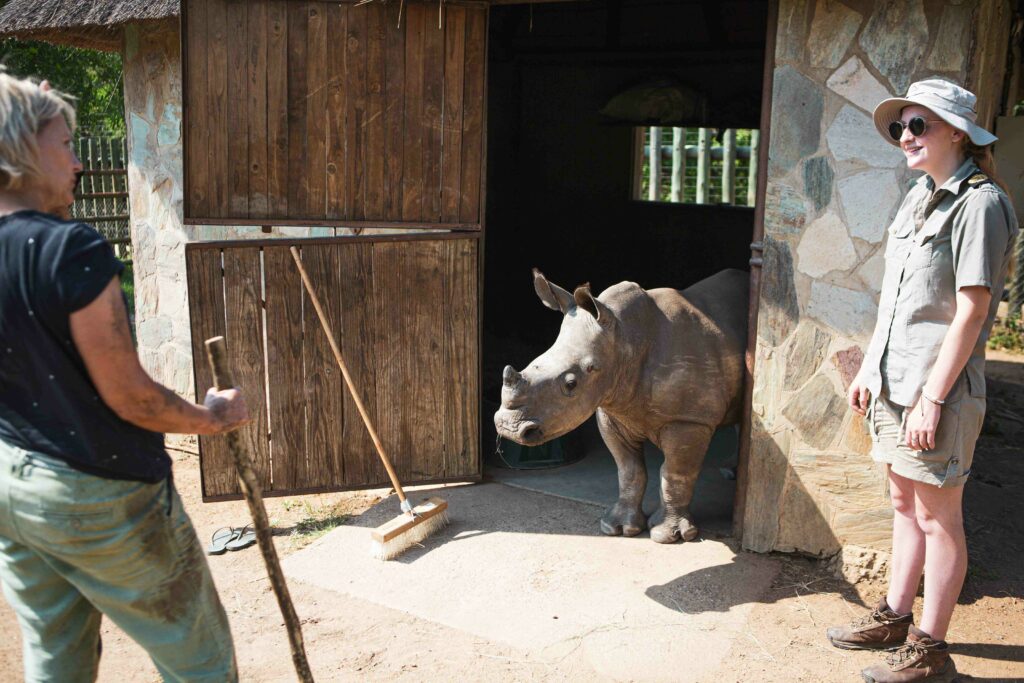
From December, Bula has been slowly meeting Esmè and Thaba, two older rhinos at HESC. After the team were confident they would get along well, Bula was fully introduced this week. Bula now joins the crash of rhinos on the daily walks and out in the veld. Peter has not yet joined the crash of rhinos as Dr Rogers and the team of curators at HESC are adjusting his milk formula.
The safety of baby rhinos in the reserve remains a top priority for the all-female anti-poaching unit, The Black Mambas. Along with their APU dog, the Black Mambas patrol the area with dedication and passion for rhino conservation. By serving as voices for their community, their conservation work inspires and empowers others to take action.
To get a glimpse of what a visit with Peter, Bula and Adine is like, check out our YouTube video:

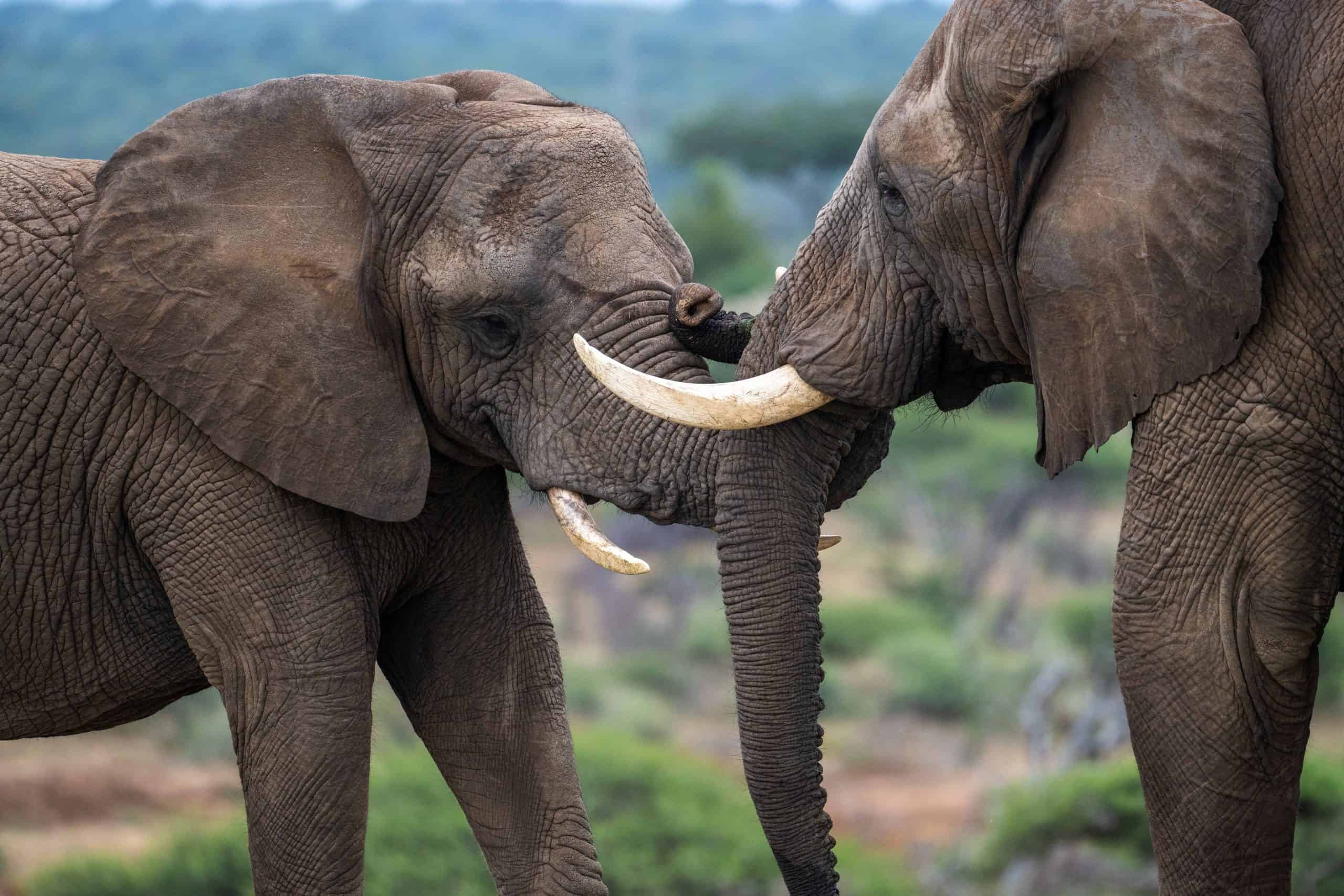
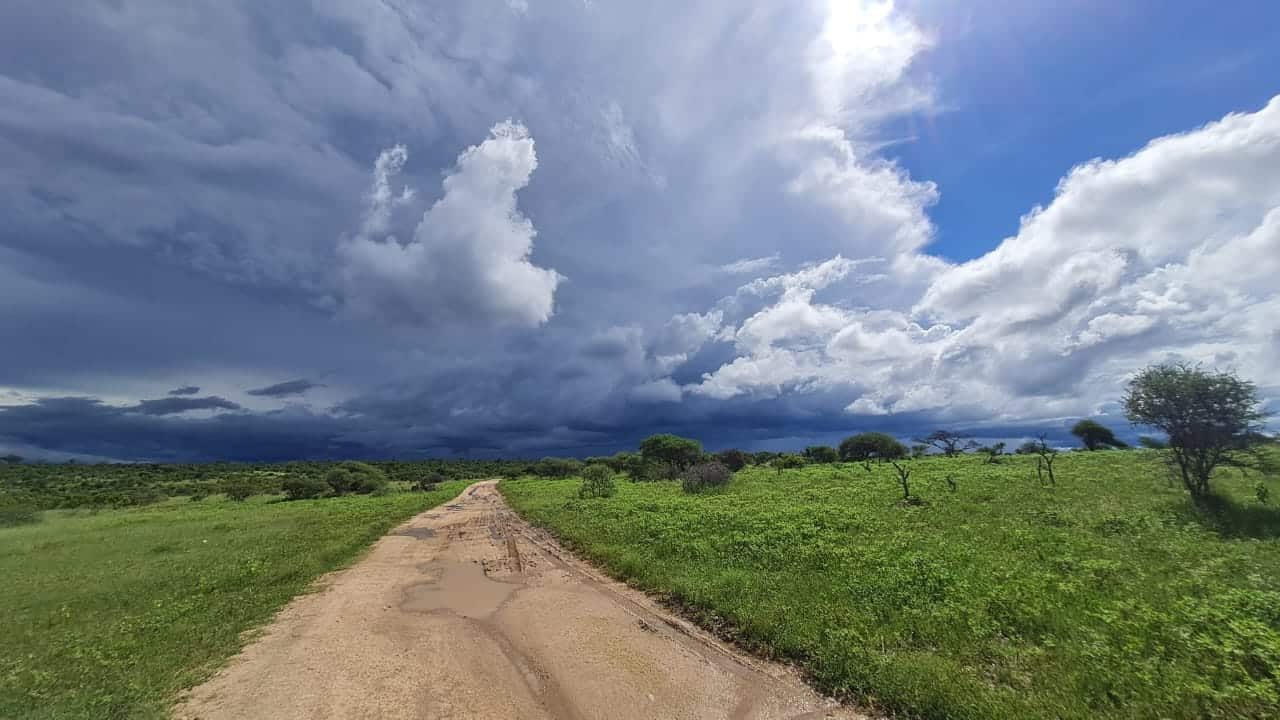
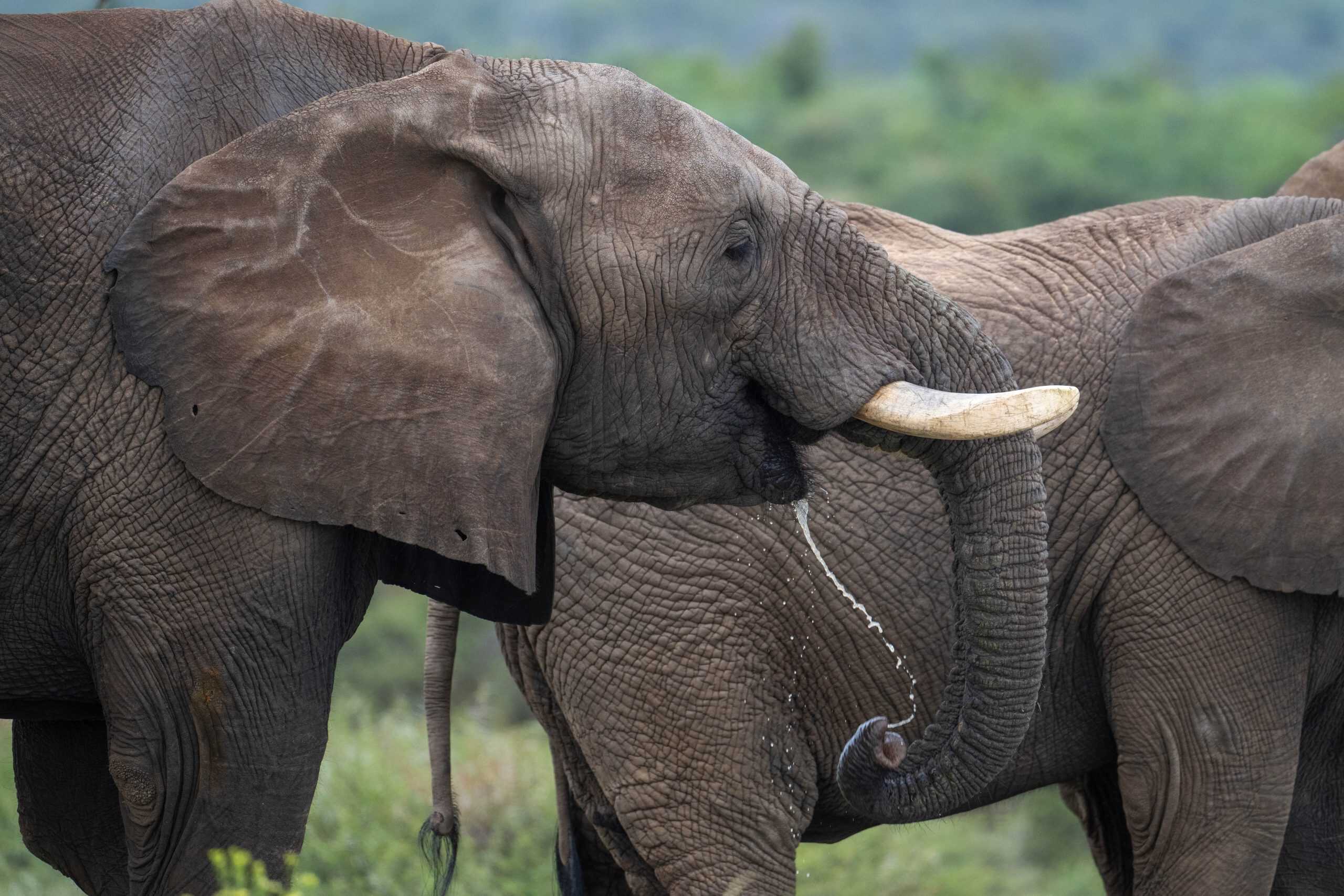

No comments yet.